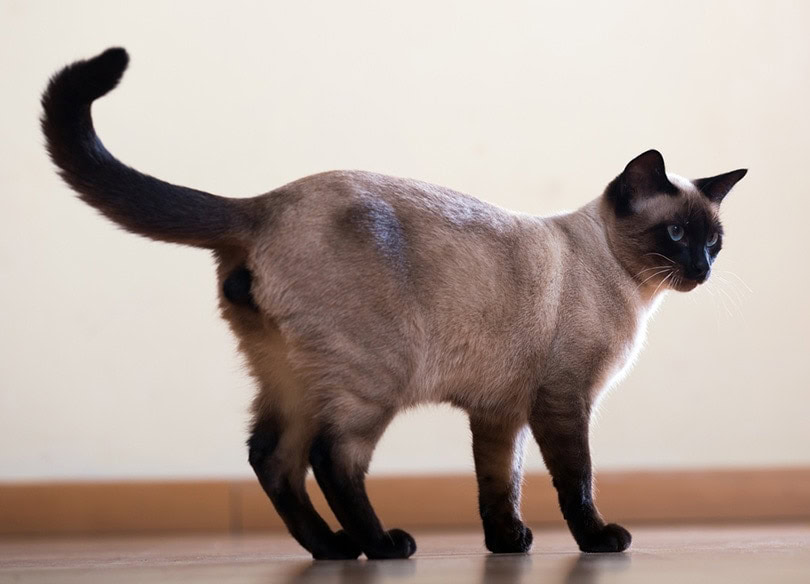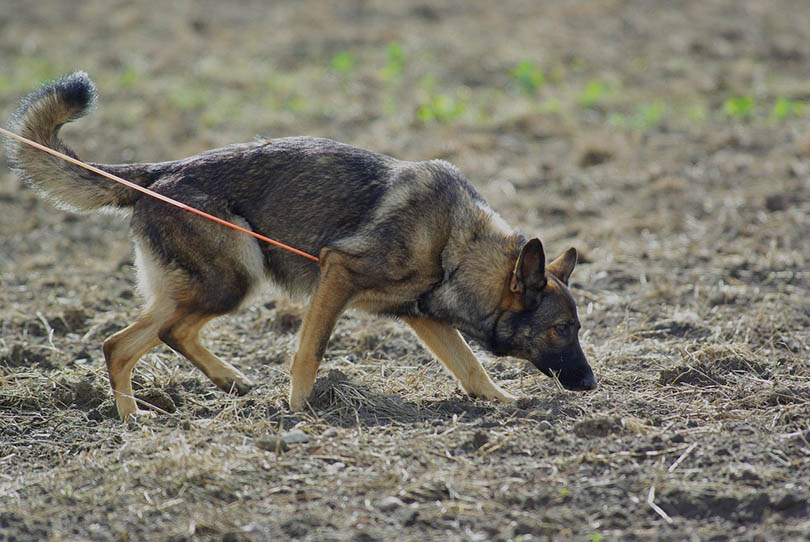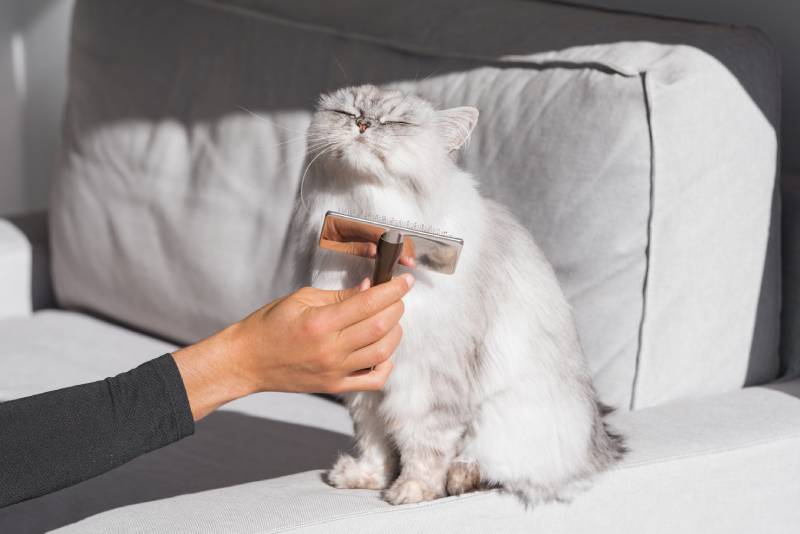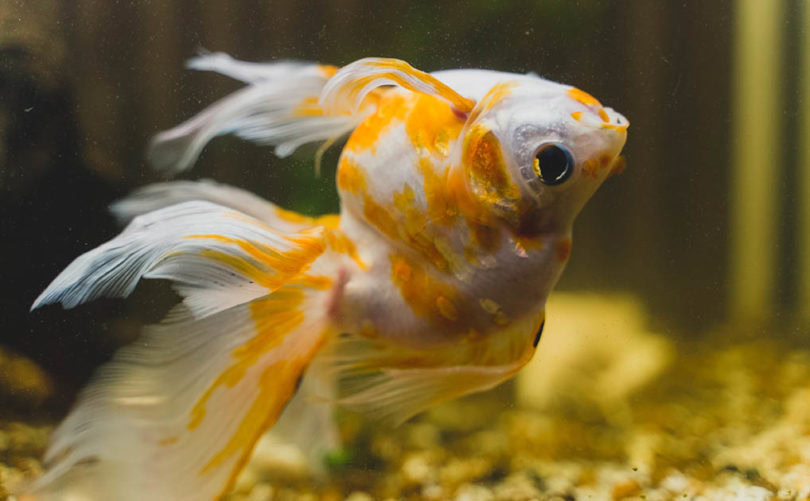VET APPROVED

The information is current and up-to-date in accordance with the latest veterinarian research.
Learn more »Click to Skip Ahead
Understanding the function of the feline digestive system is essential for any cat parent. Flatulence is part of digestion and cats do fart. Many cat owners don’t notice their cats passing gas, and it’s true that they do it less often than many other species, but they still do it.
As with all mammals, cats fart when excessive gas is built up in the intestines, the gas passes through the lower digestive system and out the anus.

Causes of Cat Flatulence
There are many reasons that cats pass gas. Usually, it’s accidental from swallowing air. Gas can also get built up from small intestinal bacteria overgrowth. Excess amounts of carbohydrates can develop gas from bacterial fermentation, and hairballs and even cause digestive disorders.
If your cat passes gas infrequently and it’s not overly smelly, it’s not likely a cause for concern. It happens when cats suffering from upper respiratory obstruction swallow air.
If air swallowing doesn’t seem to be the cause, it’s likely related to their food. It’s important to evaluate your cat’s diet as there’s a good chance the food is the cause. Food allergies and sensitives like wheat-sensitive enteropathy can cause flatus.
Many common ingredients in cat food can cause gas, especially for cats with sensitive stomachs. Avoiding low-quality cat food and checking ingredients in the formula is one way to prevent this. Highly processed foods that are higher in carbohydrates are more likely to cause gas. Human food consumption is another cause of flatulence in cats. Cats are intolerant to lactose, so milk and dairy will cause gastrointestinal issues, including flatulence. Consuming human foods can throw a cat’s delicate system out of whack, and one sign of this is excess flatulence.
Cats have uniquely designed digestive systems, and cat foods are designed to be easy to break down. That said, cats could also be allergic to specific proteins in their diets.
Other possible causes are exocrine pancreatic insufficiency, inflammatory bowel disease, and lymphangiectasia.
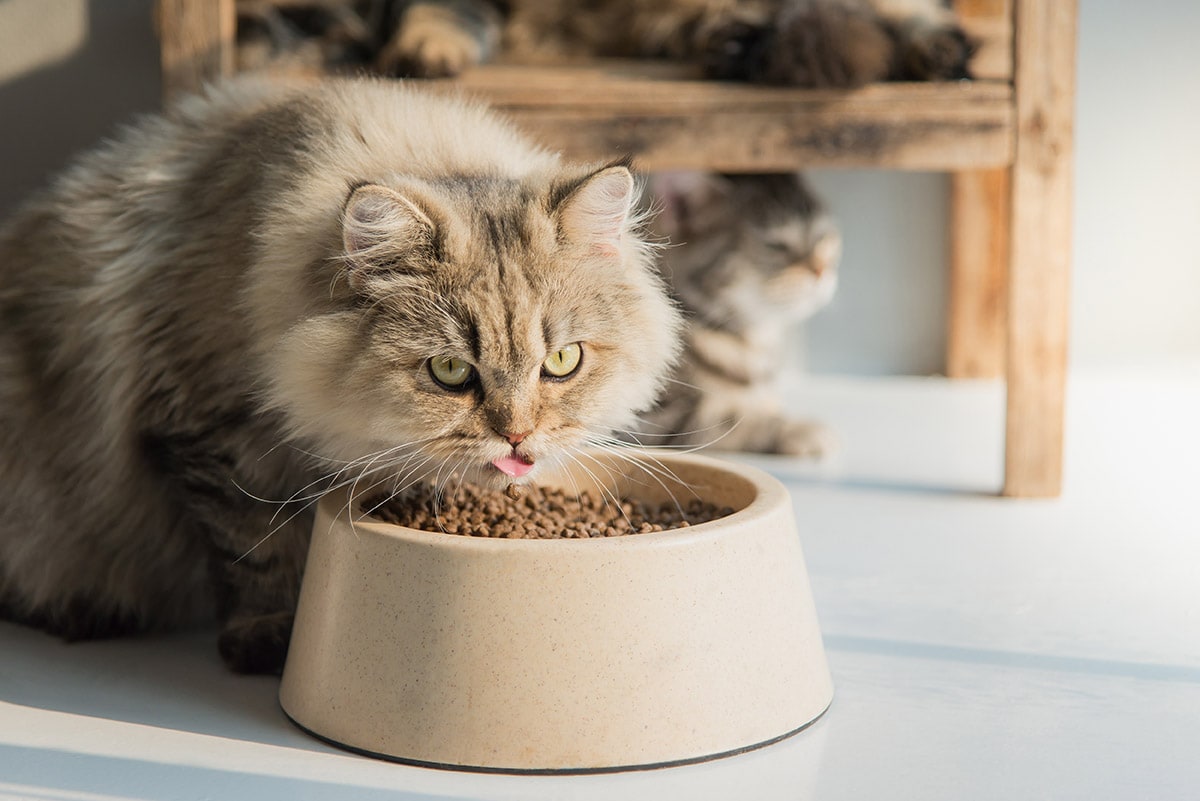
Important Considerations About Cat Flatulence
It is very important to know that sporadic flatulence is possible but excessive flatulence in cats is not normal. If you suspect that your cat’s diet is at fault, it may take some trial and error to figure out what cat food causes less of a reaction.
High-fiber foods, usually commercialized as hairball management foods can help your cat pass hair through the digestive system, but excessive fiber intake can make your cat’s flatulence problem worse, so it’s important to find a balance. Check the cat’s food ingredient list and ensure carbohydrate sources are not on the first ingredients, a cat’s natural diet is high in proteins and very low in carbohydrates, which is challenging to find in commercial cat foods. Food allergies might also be behind your cat’s problems.
Do not hesitate to consult your veterinarian if you have any concerns regarding your cat’s weight or diet.
Flatulence and Your Cat’s Health
If your cat is frequently passing foul-smelling gas, it can be a sign of a more serious digestive issue. If the flatulence is accompanied by diarrhea or vomiting, they should be examined by a veterinarian. Your vet will likely request that you bring a fresh stool sample to help them make a diagnosis.


Final Thoughts
The occasional cat flatulence isn’t a cause for concern. Sometimes, it is a result of them swallowing air, they might also have a sensitivity to a certain food in their diet. However, excess flatulence is not normal and it often indicates a more serious health problem, so it’s a good idea to consult with your veterinarian to ensure your cat’s optimum health.
See Also:
Featured Image Credit: BearFotos, Shutterstock
